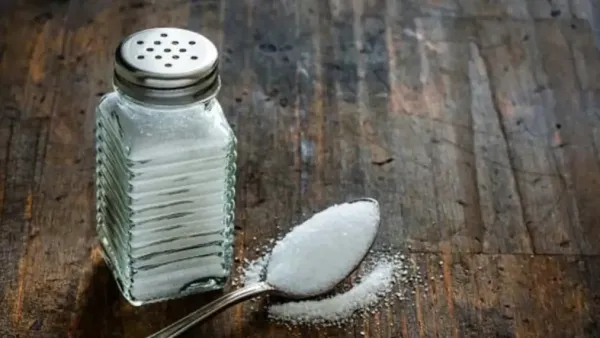
Salt Health Warning:Food seems incomplete without salt. Sodium chloride, which we call salt in common language, helps in many important functions of our body.
But as beneficial as salt is, it can also cause harm if its quantity exceeds the requirement. Health experts say that consuming more salt daily can increase the risk of serious diseases like high blood pressure, heart and kidney.
So the question is, how do you recognize if your salt intake is excessive?
Our body often gives such signals on its own, seeing which you can easily understand that your salt level has increased. Let us know about these signs in detail.
High blood pressure – the ‘silent killer’
Excessive salt intake is directly linked to high blood pressure. Eating too much salt for a long time can increase the pressure on your heart and liver.
It can cause stroke, heart attack and serious liver problems. If your blood pressure keeps increasing from time to time, it is a clear sign that it is important to control the amount of salt. At such times it is very important to consult a doctor.
feeling constantly thirsty
You might have ever experienced that after eating too much salt, you start feeling unusually thirsty. If you feel the need to drink more water every day and still your thirst is not completely quenched, then this can also be a sign of excessive salt intake.
The body responds to this to maintain its hydration balance.
Body swelling and edema
Excessive salt intake can cause fluid retention in the body. Due to this, swelling may be seen in the face, hands, feet, ankles and stomach.
This problem appears in the form of edema. If you suddenly notice swelling in your body, it is a sign that you need to control your salt intake immediately.
changes in urination
Eating too much salt also affects urination. A sudden increase in the amount of urine or its dark color is a sign of excess pressure on the kidneys.
Excess salt forces the kidneys to work harder, due to which this change is seen in urine.
Fatigue, weakness and headache
Excessive salt intake can affect the electrolyte balance of the body. This may result in fatigue, weakness and dehydration. Apart from this, problems like severe headache and migraine can also occur.
As soon as the initial symptoms appear, it is important to pay attention to the amount of salt and seek doctor’s advice if necessary. Salt is an important part of our diet, but excessive salt consumption can lay the foundation for many serious health problems.
Problems like high blood pressure, constant thirst, swelling in the body, changes in urination and fatigue are clear signs that your salt intake is increased. You can avoid these problems with a balanced diet and doctor’s advice.
-
Pakistan Plotting To Divide Hindus And Sikhs Using Khalistani Network: Report

-
'Continuous Combing Ops Underway': Haryana On High Alert After Delhi Blast

-
KKR and CSK set for high-stakes battle in IPL 2026 mini-auction with huge budgets

-
Donald Trump’s abrupt U-turn; makes big decision regarding this policy; Will have huge impact on India

-
Dalits, AIMIM, Prashant Kishor: What broke Mahagathbandhan and powered NDA
